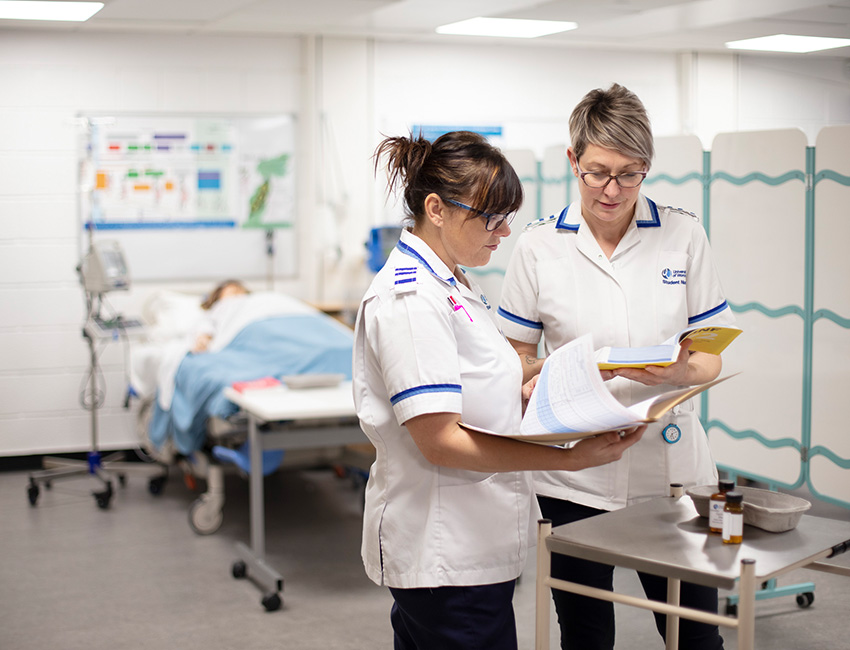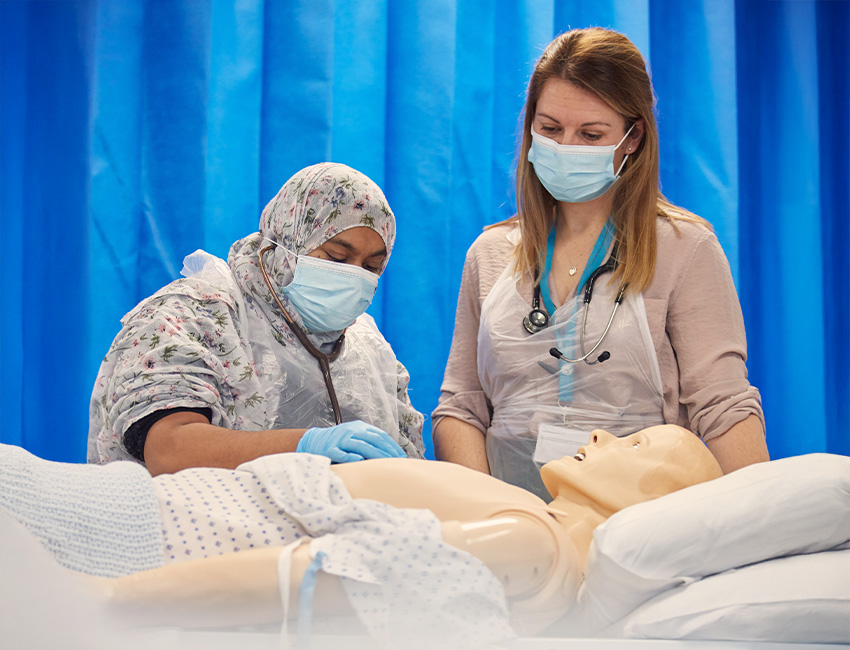This module is suitable for a wide range of healthcare professionals as a stand alone module as part of the PGCert Enhanced Clinical Practitioner course or the Professional Development Framework.
This module is part of the University’s Enhanced Clinical Practitioner PGCert course. You will study alongside other students on these courses. The module is also part of the Professional Development MA/MSc course - a flexible course that you help design to take your career to the next level.
Overview
This module will support the multi-professional enhanced practitioner to understand the key pathophysiology processes which may produce abnormal clinical examination findings in a variety of specialities.
The intended learning outcomes of the module are:
- Critically analyse the differences between normal and abnormal physiological signs and processes and apply to selected clinical presentations.
- Interpret, analyse and synthesise signs and symptoms in the context of pathophysiological processes.
- Critically evaluate current theories relating to a series of pathophysiological states.
Indicative content includes exploration of key pathophysiology processes and states such as:
- Gastrointestinal and hepatology disease
- Renal disease
- Stroke, Endocrine disease, Cardiac disease, Musculoskeletal
- Mental Health pathology
- Immunology, biochemistry, haematology
- Common ethical, legal and practical challenges of requesting investigations in clinical practice with reference to referral pathways, expert sources, risk assessment
Career benefits
Pathophysiology for Enhanced Practice will enable you to develop your clinical professional knowledge and expertise within your sphere of practice.
Examples of Graduate Attributes aligned to this module include:
- Problem Solving - the module encourages intellectual challenge through the promotion of critical analysis, evaluation and problem solving of complex situations.
- Digital Citizenship – development of digital skills and communication thruogh online platforms using the blended approach to learning and development of resources such as an e-poster.
Achievement of the module and these key attributes within the Post Graduate Framework at masters level will provide potential for career development and progression within a variety of healthcare settings.
Module delivery
Students will be taught by a teaching team whose expertise and knowledge are closely matched to the content of the modules on the course.
A highly blended and flexible approach is taken to teaching and learning which consists of the following:
- 36 hours of online teaching
- 72 hours of directed and independent study
- 42 hours of preparation for assessment
On a typical day online day, contact time will be structured around:
- Flipped classroom
- Lead lecture available via the VLE (BlackBoard Ultra)
- Virtual workshops, seminars, or tutorials
- Asynchronous online discussion forum
The summative module assessment consists of an e-poster presentation to allow the student to demonstrate the application and analysis of a pathological process using a case-based approach. During formative assessment students will have the opportunity to gain peer and tutor feedback/feedforward in the development of the assessment.
Entry requirements
Applicants must hold an existing professionally regulated qualification e.g., NMC/HCPC.
In addition applicants must hold a lower second-class honours degree (2:2) in a health-related subject or an overseas equivalent OR Qualification and experience considered to be equivalent to the above.
Any questions?
If you have any questions about entry requirements, please call our Admissions Office on 01905 855111 or email admissions@worc.ac.uk.
Contact
If you have any questions, please get in touch. We're here to help you every step of the way.
Admissions Office
admissions@worc.ac.uk01905 855111




